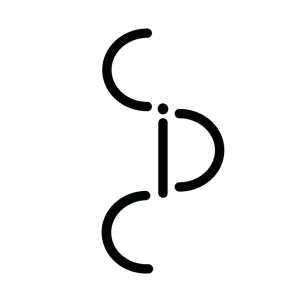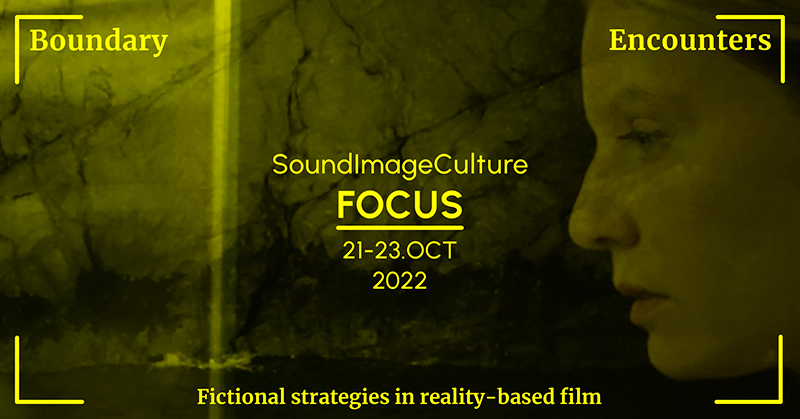ON THE EDGE OF FICTION
“There is a constitutive movement in modern fiction, which shifts its center of gravity from its traditional core, constituted by the knots of narrative events, to those edges where fiction finds itself at its possible cancellation…edges where fiction welcomes the world of beings and situations that previously existed at its margins: the insignificant events between what happens and what simply happens.
These are also the uncertain boundaries between what is real and what is invented.
Finally, these are the edges where the narrative that intends to document the real appropriates the forms of declared fiction.”
Jacques Rancière – The Edges of Fiction.
Chloe Zhao’s Oscar-winning “Nomadland” is a perfect example of this new trend in modern fiction, which blurs the boundaries of genre.
In “Nomadland” (2020), the main character is played by an actress who meets a large “family” of real people. Unprofessional, these real-life actors play out their lives. The film is a plunge into the survival of precarious workers.
It’s fair to say that this kind of approach opens up new perspectives for fiction, by moving away from traditional forms of narration and production.
Narrative, because it leaves aside the paradoxical Aristotelian causality in which active characters pass from fortune to misfortune and from ignorance to knowledge. A basic principle, in which truth imposes itself as a reversal of appearances.
Of production, because it abandons the traditional modes of industrial production, in which a script is destined to be executed during an increasingly short shooting schedule and with a large crew.
On the other side of the spectrum, a number of films whose source is reality are approaching fiction by including fictional mechanisms in their devices.
As far back as 1989, Robert Kramer’s “Route One” follows a doctor returning from Vietnam as he crosses American territory. And it’s only at the very end of the film that we learn that the doctor is…an actor.
Both “Nomadland”, categorized as “fiction” and “Route One” as “documentary”, use a main character, “a fictional operator”, to cross a real territory and report on a present time.
On both sides of this industry-invented line (documentary/fiction) appear works that flirt with and transgress this boundary.
On the fictional side, these works summon reality as an integral part of their material.
On the documentary side, they reorganize information through characters, a story and use narrative structures in order to appropriate reality in a different way.
Can we call these works hybrids? Transgenders?
Never mind. They live on the edge, within their limits.
They question the modes of representation.
They combine the insignificant events of daily existence and the brutality of a reality that cannot be included. They discover worlds and produce unexpected encounters. They are creators of a style resulting from their relationship with reality and affirm a light and contemporary mode of production.
They invent other “heroes”, closer to everyday banality, “heroes who do not expect much from their action, because most humans, strictly speaking, do not act”. J. Rancière.
Belgium, and in particular the Wallonia-Brussels Federation, is rich in this type of work which has the recognition of major festivals such as Cannes, Berlin, Locarno.
Filmmakers, nourished by documentary experiences and at the same time close to fiction or theater, try to move the lines and thus place themselves on the edges of fiction. Emmanuel Marre, Claude Schmidt, Jorge Léon, Bénédicte Liénard, Paloma Sermon-Daï, to name just a few!
Drawing on the experience of SIC’s work in the development of artistic works, this study project extends this experience in the form of a public program of sharing and reflection.
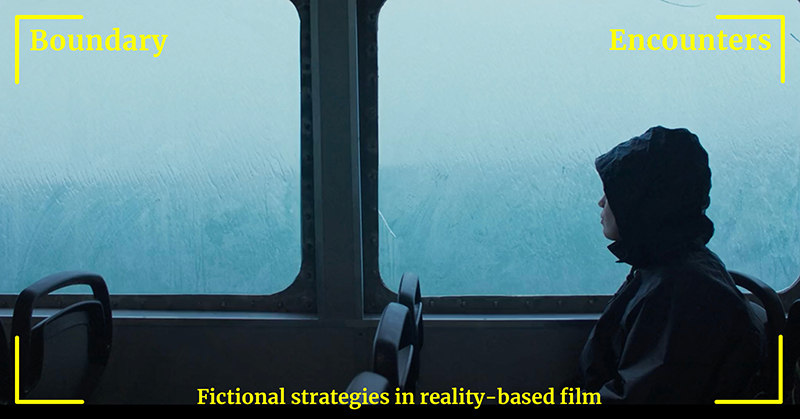
Program
“The hybrid, the ridge between fiction and documentary”.
Three days dedicated to setups in the company of filmmakers. 3 screenings per day and conviviality alternate in order to invite other audiences.
Highlighting the films of the Wallonia-Brussels Federation: Screenings and round tables in the presence of filmmakers and producers.
Case studies such as “D’un château l’autre” or “Rien à foutre” – Cannes Critics’ Week 2021 – Emmanuel Marre.
International philosophers and practitioners join Belgian artists in cross-exchanges, including with those who are currently or have previously participated in the SoundImageCulture program.
Meetings with the public around screening debates, staged dialogues and moments of free conviviality, such as improvised performances and meals.
Program open to students of film schools – Insas, Iad, Inraci, Ritcs, Erg…..
SoundImageCulture partners: Beursschouwburg, Pianofabriek, Bozar, VGC, VAF.
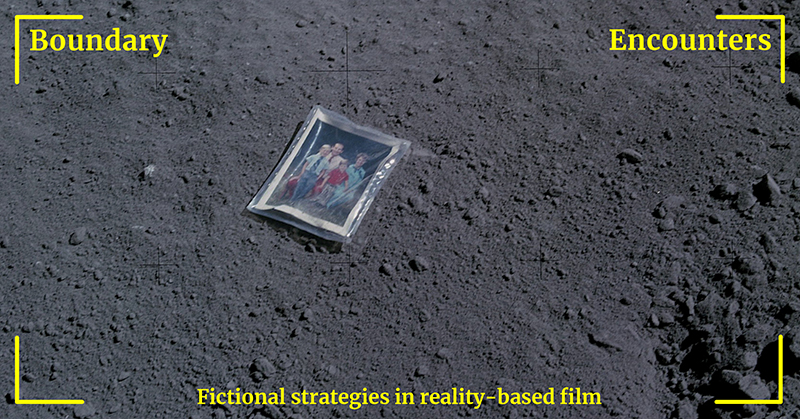
THE APPROPRIATION OF REALITY VIA FICTION OPERATORS
The presented filmmakers are selected because of the aesthetic and narrative choices that push the boundaries of documentary work, exploring various fictional devices and strategies.
In other words, while these filmmakers use fictional devices, here, they do so from and in the context of work on reality.
In the cases of their films, these strategies allow for a playful and stimulating engagement with the story and memory. Figures are brought back from the past, animated and embodied to reopen and re-address traumas or previous events that have slipped through the cracks or remained in the shadows of history.
While approaching reality, these devices create empathy and thus approach the public. They are looking for forms that also allow questions of territory and access to be addressed.
The filmmakers question border zones, extra-territorial spaces and the zones between private space and public space. They open up the possibility of accessing and reimagining spaces that are off limits.
They unpack historical material that has otherwise been buried or ignored.
This process of revelation and resuscitation is inherently political because it encourages us to confront these stories that have not yet been told today. By showing us those that may not be immediately visible but still felt, the filmmakers confront us with experiences and stories that have always been there, but have remained hidden, waiting for the opportunity to be revealed to others. .
They create, for the viewer, other forms of cinematographic experience of documentary material and through this, they instill new political subjectivities.
In parallel with the film screenings and debates with the public, there will be theoretical interventions by authors relating to the philosophy and criticism of cinema.
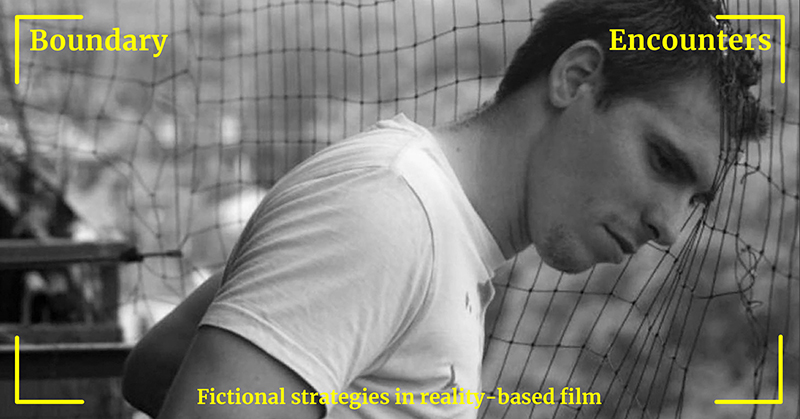
Filmmakers and works
D’UN CHÂTEAU L’AUTRE
Spring 2017. A scholarship student in a major Parisian school, Pierre, 25, stays with Francine, a 75-year-old retiree confined to a wheelchair. They are perplexed as they watch the electoral fair between the two rounds of the presidential election, which is in full swing.
EMMANUEL MARRE
French filmmaker born June 21, 1980 in Cormeilles-en-Parisis. Emmanuel Marre studied at the Institute of Broadcasting Arts in Belgium. His first feature film, Rien à foutre, directed with Julie Lecoustre, is selected for the Critics’ Week at the 2021 Cannes Film Festival
INCANDESCENCES
Through the fantasy of immortality, Incandescences intends to question our desires, our fears and our burning aspirations to go beyond the limits of our finitude in a world whose end we constantly announce. Lucy, our three-million-year-old ancestor, whose voice and body will be invented for the film, joins our present and delivers her perceptions, her reflections, her perspectives, her projections. She thus becomes the lucid and critical guide of a cinematic meditation celebrating life despite the social, ecological and political choices that tend to threaten it.
JORGE LEON
Jorge León studied cinema at INSAS in Brussels. At the start of his career, his interests mainly revolved around documentary film. His practice intersects with that of many performing artists such as Meg Stuart, Benoît Lachambre and Simone Aughterlony. This generated multiple artistic collaborations.
His films Vous êtes Servis (2010), Before We Go (2014) and Mitra (2018) have been screened at international festivals. They have been recognized several times with numerous prizes. In 2019, Jorge was the recipient of the Artistic Research Grant (FRART) awarded by the FNRS in Belgium. Jorge teaches at Insas and is also a member of the SIC (SoundImageCulture) artistic team. As a guest speaker, he is often invited to speak about his own artistic practice through readings and presentations.
Jorge will discuss his current work titled Incandescence.
BRAQUER POITIERS
More nickel feet than bandits, Francis and Thomas take Wilfrid, owner of a car wash, source of a few handfuls of euros daily, hostage. Stockholm syndrome at work in Wilfrid, but in his own very personal way, here he immediately takes a liking to the situation, which he even likes to theorize at length, while uncertainty spreads over the two friends joined by their friends coming from the South.
CLAUDE SCHMITZ
Claude Schmitz lives and works in Brussels. He graduated from the National Higher Institute of Performing Arts (INSAS) in directing.
He is an associated artist at the Halles de Schaerbeek and his shows have been presented several times at the KunstenFESTIVALdesArts as well as at the National Theater, the Palais des Beaux-Arts, the Halles de Schaerbeek, the Théâtre la Balsamine, the Filature Liège, the Salzburger Festspiele, at l’HumainTROPHumain, at the CDN in Limoges, at the Théâtre de l’Onde, at the Art Center, etc. Currently, he has directed three medium-length films. NOTHING BUT SUMMER was screened at the Cinéma du Réel and at Brive FF where it won the European Grand Prix. His latest film, BRAQUER POITIERS (2018), was selected at the FID International Film Festival in Marseille.
PETIT SAMEDI
Damien Samedi is 43 years old. When he was a child, in his Walloon village on the banks of the Meuse, it was called Little Saturday (Petit Samedi). For his mother Ysma, Damien is still her kid, the one she never abandoned when he fell into drugs. A son who, despite everything, sought to protect his mother. A man who tries to free himself from his addictions and who faces his history to get out of it.
PALOMA SERMON-DAI
Born in Namur (Belgium) in 1993. After studying Artistic Humanities at the Huy conservatory, in September 2014 she began a bachelor’s degree in Image Technology at the Haute École Libre in Brussels. She will direct three short documentary films there, including her graduation film Makenzy in 2016, selected in particular at Visions du Réel. His first feature film Petit Samedi was presented at the Berlinale Forum in February 2020.
GHOST HUNTING
Raed Andoni places an ad in a newspaper in Ramallah. He is looking for former detainees from the Moskobiya interrogation center in Jerusalem. In his announcement, he asks that the men also have experience as craftsmen, architects or actors. To confront the ghosts that haunt him, Raed Andoni brings together this eclectic group of ex-prisoners to recreate Al-Moskobiya, Israel’s main interrogation center, where he himself was incarcerated at the age of 18 years old. Day after day, these construction workers, a blacksmith, an architect, an assistant director give shape to their memories of their survival with courage and humor. As cell walls rise, tongues and emotions become looser.
RAED ANDONI (director, Palestine)
Raed Andoni was born in Amman, Jordan in 1967, he is a Palestinian director and producer who began his career in the film industry in 1997 as an independent producer. He is co-founder of the production company Dar Films in Ramallah and Les Films de Zayna in Paris. For his first feature-length documentary, Fix Me, Andoni filmed 20 sessions of his own therapy in Ramallah. Featuring a colorful range of characters, including members of Andoni’s own family, Fix Me explores the need to find individuality in a place so dominated by collective consciousness and identity. Fix Me premiered at Sundance and Cannes. Raed Andoni’s second feature film, “Ghost Hunting,” won the Best Documentary Award at the 2017 Berlinale.
EXTINCTION
Extinction contextualizes the current histories and settlements of the post-Soviet border through the voice (and lack thereof) of Kolya, a stateless character. In the film, Kolya engages in interviews, sojourns on the streets and works daily shifts at a local arms sales factory. As the camera traces ancient Catholic cathedrals, aged Marxist-Leninist monuments and uncrossed forests, he finds himself immersed in temporalities and political identities that constantly quarrel, destroy and intersect. The film slowly constructs an associative and non-linear history of a landscape in which the boundaries between past and present, documentary and fiction remain unstable.
SALOMÉ LAMAS (director, Portugal)
Salomé Lamas is a Portuguese filmmaker and visual artist who has shown her work at film festivals and museums such as: Berlinale, Museo Arte Reina Sofia, FIAC, Museu do Chiado in Lisbon, DocLisboa, Cinema du Réel, Visions du Réel, MoMA (Museum of Modern Art), Museo Guggenheim Bilbao, Harvard Film Archive, Museum of Moving Images NY, Jewish Museum NY, Fid Marseille, Arsenal Institut fur film und videokunst, Viennale, Culturgest, CCB (Centro Cultural de Belém), Hong Kong FF, Museu Serralves in Porto, Tate Modern, CPH: DOX, Center d’Art Contemporain de Genève, Bozar, Tabakalera, ICA London, TBA 21 Foundation, Mostra de São Paulo, CAC Vilnius, MALBA, FAEMA, SESC São Paulo, MAAT , La Biennale di Venezia Architettura, among others.
ANOTHER PLANET – Amir Yatsiv
Meetings in virtual worlds simulating the Auschwitz concentration camp. The film follows the creators of these virtual camps, each in their own imagined world: a German prosecutor; students from an Israeli high school; an Israeli game developer; a Polish graphic designer; a German architect and an Israeli historian. The film is constructed like a mosaic in which each creator’s avatar explores and wanders through their own virtual Auschwitz. The film is a journey into the depths of reconstructed memory that reveals the obsession with the representation of the Holocaust.
AMIR YATZIV (director, Israel)
Previous SIC Participant
Amir Yatziv is a filmmaker and visual artist based in Tel Aviv. Yatziv is interested in stories from the past and their contemporary interpretation. In his works and films he creates a feeling of estrangement, revealing the impossibility of a single coherent historical truth. Amir graduated from the Bezalel Academy of Art and Design in Jerusalem (2008) and from the Hito Steyerl class at UDK Berlin (2010). His works have been featured in numerous group and solo exhibitions in several locations, including the Tate Modern (London), the KW Institute for Contemporary Art (Berlin), and the Van Abbemuseum (Eindhoven), and his films have been screened in several film festivals around the world.
THE SASHA
In 1972, astronaut Charles Duke landed on the Moon aboard Apollo XVI. It was responsible for taking photos of the lunar surface with a high-resolution camera. Questioning the veracity of photographic documentation through its narrative, The Sasha is an investigation into the human perspective on Earth and our constant struggle with our temporal and spatial limitations. From space exploration to cyberspace, from an analog Moon in 1972 to a virtual Moon in Google Earth today. A story of parallel universes where eternity seems to be lost between frames and interfaces.
MARIA MOLINA PEIRÓ
María Molina Peiró is a Spanish audiovisual artist and filmmaker based in Amsterdam, whose work lies at the intersection between cinema, contemporary art and research. In her work, she explores the overlapping relationships between history, technology and nature through a hybrid form (fiction, documentary and experimental). She is particularly interested in the blurred boundaries between memory and imagination, natural and artificial, science and mysticism or living and non-living entities.
His works and video installations have been exhibited internationally in art centers and museums such as Haus der Kulturen der Welt (Berlin), MACBA (Barcelona), Musée du Louvre (Paris), Washington National Gallery, MMCA National Museum of Modern and Contemporary Art (Seoul), Hong-Gah Museum (Taipei), Vilnius National Gallery, EYE Film Museum (Amsterdam), ISEA Korea, London Science Museum, MATADERO (Madrid), Museum of Contemporary Art of Vojvodina, TAIWAN Contemporary Culture Lab and CCCB (Barcelona) among others.
THE ANABASIS OF MAY AND FUSAKO SHIGENOHU, MASAO ADACHI AND 27 YEARS WITHOUT IMAGES
The Anabasis of May and Fusako Shigenohu, Masao Adachi and 27 Years Without Images (2011), addresses the question of the unrepresentable. There are three people in the title of the work. Fusako Shigenobu is the founder of the Japanese Red Army: she left Japan in 1969 to settle in Beirut. His daughter, May Shigenobu, was born in 1973 and lived her life until the age of 27 in great secrecy. She had to hide her identity for the first 27 years of her life, until 2000 when her mother was arrested. Then she was able to emerge into another phase of her life, which is when she also returned to Japan. The third person in the title is Masao Adachi, a radical and experimental director and screenwriter, whose work is influential in Japanese New Wave cinema of the 1960s. He became increasingly radicalized politically, both in his films and in his ideas, so that he finally decided to make a film about the Japanese Red Army in Beirut and, eventually, he joined it, spending 27 years not so much as a filmmaker, but rather as a traveling companion or a person who participates in the activities of the Japanese Red Armies. The Anabasis of May and Fusako Shigenohu, Masao Adachi and 27 Years Without Images brings together these characters and their overlapping stories in a mesmerizing film that revolves around a series of personal exchanges and correspondences.
ERIC BAUDELAIRE
Éric Baudelaire is a visual artist and filmmaker based in Paris. After training as a political scientist, Baudelaire established himself as a visual artist with a research practice. His feature films Un Film Dramatique (2019), Also Known As Jihadi (2017), Letters to Max (2014), The Ugly One (2013), The Anabasis of May and Fusako Shigenobu, Masao Adachi and 27 Years Without Images (2011) have been widely circulated in film festivals, notably in Locarno, Toronto, New York, FID Marseille and Rotterdam. His artistic practice, anchored in research work, also includes photographs, prints, performances and publications that he integrates into installations around his films. He is the recipient of the Duchamp Art Prize (2019), the Guggenheim Fellowship (2019) and the Future of Europe Art Prize (2017).
HAVEN
The bizarre story of an abandoned WWII gun tower.
It has been occupied by a British family since the 1960s. Originally intended to broadcast pirate radio, the family worked with two cyber-libertarians in early 2000 to establish the world’s first data haven on the tower.
The data haven, called HavenCo, promised to be the only truly secure place in the world to store information. The tower, in the middle of the sea, is a paradoxical site, a space favoring the sovereignty and autonomy of data, which is controlled by a closed and isolated family unit.
JAMES NEWITT (director, Portugal)
Previous SIC Participant
James Newitt is an Australian filmmaker and visual artist, based in Lisbon. James’ work addresses specific social and cultural contexts through personal, observational and performative approaches. His recent work has increasingly adopted speculative forms of storytelling as an extension of the more documentary trends he continues to explore.
James has exhibited his work in museums and film festivals including: Carpintarias de São Lázaro, Lisbon; the Art Gallery of New South Wales; Perth Revelation International Film Festival; Oslo Independent Film Festival; the Center for Contemporary Art, Glasgow; Lumiar Cite, Lisbon; Art Gallery of Queensland; the Museum of Contemporary Art, Sydney; the Gallery of Fine Arts, Split, Croatia; Rosalux, Berlin and the Art Gallery of South Australia.
ERIKA BALSOM (author, United Kingdom)
Erika is a prolific writer and leading theorist in the field of documentary film, particularly in the spaces between documentary and contemporary art. She will bring her perspective on ghosting by sharing her recent research and her in-depth knowledge of documentary film during the seminar.
Erika Balsom is Reader in Film Studies at King’s College London. She is the author of TEN SKIES (2021), An Oceanic Feeling: Cinema and the Sea (2018), After Uniqueness: A History of Film and Video in Circulation (2017), and Exhibiting Cinema in Contemporary Art (2013). She is co-editor of Artists’ Moving Image in Britain Since 1989 (2019) and Documentary Across Disciplines (2016).
In 2018, she received a Philip Leverhulme Prize and the Kovacs Essay Prize from the Society for Cinema and Media Studies. She holds a PhD in Modern Culture and Media from Brown University, an MA in Cultural Studies from Goldsmiths College, and an Honors BA in Film Studies from the University of Toronto.
SARA MAGNO (moderator, Portugal)
Sara Magno is a doctoral student in cultural studies at the Lisbon Consortium (UCP) and the University of Copenhagen. Sara’s research focuses on documentary filmmaking in the field of contemporary art and the relationship between art and politics. She has published texts on the work of the Portuguese artist Salomé Lamas and the notions of reflexivity, documentality and parafiction.
Sara studied photography and video at Ar.Co, Center for Art and Communication, Lisbon, and the Gerrit Rietveld Arts and Design Academy, Amsterdam. In 2014, she completed her master’s degree in Communication and Art at the New University of Lisbon, Faculty of Social and Human Sciences with the thesis, The Image-Document: Refigurations of the Archive on the Films of Harun Farocki, Hito Steyerl and Filipa César.
